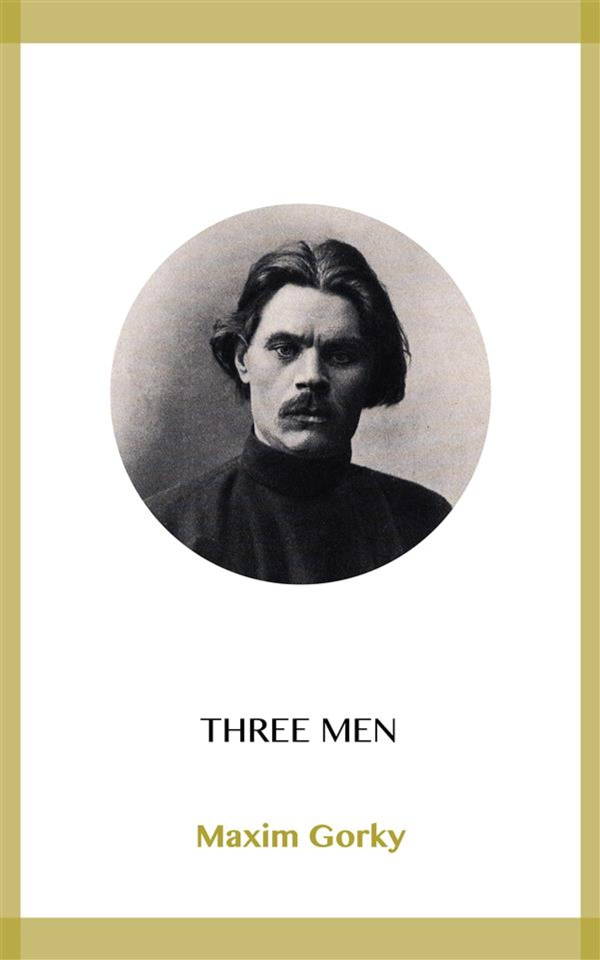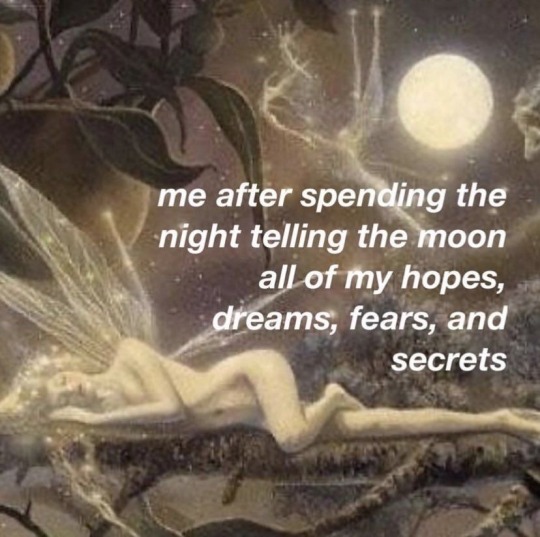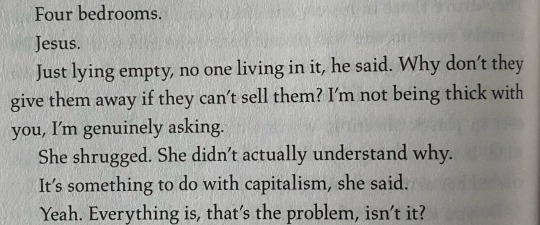#marxist literature
Text
happy pride reccing some anti-assimilationist, anti-capitalist, and abolitionist books and texts
BOOKS
Why Are Faggots So Afraid of Faggots? edited by Matilda Bernstein Sycamore (2012)
"Whatever happened to sexual flamboyance and gender liberation, an end to marriage, the military, and the nuclear family? As backrooms are shut down to make way for wedding vows, and gay sexual culture morphs into "straight-acting dudes hangin' out," what are the possibilities for a defiant faggotry that challenges the assimilationist norms of a corporate-cozy lifestyle?"
Transgender Liberation: A Movement Whose Time Has Come by Leslie Feinberg (1992)
This pamphlet is an attempt to trace the historic rise of an oppression that, as yet, has no commonly agreed name. We are talking here about people who defy the ‘man’-made boundaries of gender.
Transgender Warriors: Making history from Joan of Arc to Dennis Rodman by Leslie Feinberg (1996)
[Leslie Feinberg's] book celebrated the resistance to transphobia and a vision of trans liberation articulated from the perspective of class struggle. It understood that no liberation from transphobia or any of the divisive and violent oppressions in class society is possible without the transformation of capitalism into socialism.
The Faggots & Their Friends Between Revolutions by Larry Mitchell (1977)
Stories told of these times make the faggots and their friends weep. The second revolutions made many of the people less poor and a small group of men without color very rich. With craftiness and wit the faggots and their friends are able to live in this time, some in comfort and some in defiance.
Also this interview
Gender Outlaws: The Next Generation edited by Kate Bornstein, and S. Bear Bergman (2010)
Today's transgenders and other sex/gender radicals are writing a drastically new world into being.
Made In India: Decolonizations, Queer Sexualities, Trans/National Projects by Suparna Bhaskaran (2004)
Made In India explores the making of "queer" and "heterosexual" consciousness and identities in light of economic privatization, global condom enterprises, sexuality-focused NGOs, the Bollywood-ization of beauty contests, and trans/national activism.
That's Revolting: Queer Strategies For Resisting Assimilation edited by Matilda Bernstein Sycamore (2008)
As the growing gay mainstream prioritises the attainment of straight privilege over all else, it drains queer identity of any meaning, relevance or cultural value.
How To Blow Up A Pipeline by Andreas Malm (2021)
Malm argues that sabotage is a logical form of climate activism, and criticizes both pacifism within the climate movement and "climate fatalism" outside it.
On Connection by Kae Tempest (2020)
On Connection is medicine for these wounded times.
Are Prisons Obsolete by Angela Y. Davies (2003)
If you know anything about Angela Davis—anti-racist activist, Marxist-feminist scholar—you know that her answer to the question posed in the title is "Yes." This is a short primer on the prison abolition movement
Becoming Abolitionists: Police, Protests, and the Pursuit of Freedom by Derecka Purnell
This profound, urgent, beautiful, and necessary book is an invitation to imagine and organize for a less violent and more liberatory world.
Black Marxism by Cedric Johnson (1983)
Influenced by many African American and Black economists and radical thinkers of the 19th century, Robinson creates a historical-critical analysis of Marxism and the Eurocentric tradition from which it evolved. The book does not build from nor reiterate Marxist thought, but rather introduces racial analysis to the Marxist tradition.
The Transgender Issue: An Argument For Justice by Shon Faye (2021)
[Shon Faye] provides a compelling, wide-ranging analysis of trans lives from youth to old age, exploring work, family, housing, healthcare, the prison system and trans participation in the LGBTQ+ and feminist communities, in contemporary Britain and beyond.
Burn The Binary: selected writings on the politics of being trans, genderqueer, and non-binary by Riki Wilchins (2017)
This single volume offers a selection of Riki’s most penetrating and insightful pieces, as well as the best of two decades of Riki’s online columns for The Advocate never before collected, from "Where Have All the Butches Gone," to "Attack of the 6-Foot Intersex People"
ARTICLES
Assuming The Perspective Of The Ancestor by Claire Schwartz (2022)
Philosopher Olúfẹ́mi O. Táíwò on building constructive, future-oriented politics, at scale.
The Gender Binary Is A Tool For White Supremacy by Kravitz Marshall (2020)
A brief history of gender expansiveness - and how colonialism slaughtered it
Meet Chris Smalls, the man who organized Amazon workers in New York By Anna Betts, Greg Jaffe, and Rachel Lerman (2022)
The fired worker and former rapper did what nobody else has done in the U.S.
The Nuclear Family Was A Mistake by David Brooks (2020)
The family structure we’ve held up as the cultural ideal for the past half century has been a catastrophe for many. It’s time to figure out better ways to live together.
Universal basic income seems to improve employment and well-being by Donna Lu (2020)
Extinction Isn’t the Worst That Can Happen by Kai Heron (2021)
"This brings us to the third problem with eschatological framings of the climate crisis: they overlook the fact that for many, the end of the world has already happened. In October last year, Nemonte Nenquimo, a Waorani woman, mother and leader, wrote a desperate letter to the western world reminding us that for Indigenous peoples, “the fires are raging still”."
MISC
Manifesto: An Aromantic Manifesto by yingchen and yingtong
free to read
their tumblr (with further resources)
Essay: I Dream Of Canteens by Rebecca May Johnson (2019)
There is a space for everyone. A space, a glass of water, and a plug socket.* Chairs and tables and cleaned toilets. So many chairs so that no one is without one.
Acceptance Speech (video and text): The National Book Foundation Medal for Distinguished Contribution to American Letters speech by Ursula Le Guin
Hard times are coming, when we’ll be wanting the voices of writers who can see alternatives to how we live now, can see through our fear-stricken society and its obsessive technologies to other ways of being, and even imagine real grounds for hope.
And here's a video to cleanse the soul: bell hooks: Transgression
bell hooks & Gloria Steinem at Eugene Lang College
#happy pride#leslie feinberg#ursula le guin#bell hooks#kate bornstein#queer literature#trans literature#marxist literature#black literature#political lit#andreas malm#rebecca may johnson#kai heron#kae tempest#matilda bernstein sycamore#angela davies#shon faye#riki wilchins#larry mitchell#s bear bergman#Suparna Bhaskaran#derecka purnell#cedric johnson#Olúfẹ́mi O. Táíwò#chris smalls#yingchen#yingtong#if anyone has anything from outside america or the uk (there are a few but not a lot here) + more on disability activism +#more on intersex activism#i haven't read *fixing sex* yet so dunno if it fits this exact list
1K notes
·
View notes
Text
The Three

It's been a long time since I've read a Russian author. And of course, in translation. Gorky's edited short stories and Mother are already ticked off in my list, and this i didn't know about from before. Immediately as I started reading this, i saw young minds being absolutely crushed and trapped by the forces of society. They learn about selfishness, greed, lust and cowardice all too soon. And there is the young girl Masha too, who swiftly gets lost in the hubbub of a misogynist society that couldn't care less for her. The preface tells me only Pavel was able to find truth in life, but i doubt that. Yakov was not meant for this world. For him, truth was in his constant curiosity, a dangerous agnosticism and a yearning for education that his innkeeper father squashed in the innkeeping responsibilities he imposed on him. I thought Ilya was the most likely candidate to find his truth in life, but his is a pathetic effort. He desires his whole childhood for a clean civilised existence but is brutally disillusioned by the utter filth of bourgeois lives. The only consolation, he didn't have to bear this realisation for too long. Pavel, on the other hand, is lost, just like poor Masha is, towards the end of the novel. He has no recognisable destination or end goal, which is perhaps the truth he was pursuing, that there isn't a final one. Gorky will literally make you cry out in pain and contort yourself in empathy if you allow him to, just like his characters do.
#books#reading#currently reading#russian literature#maxim gorky#translation literature#the three#three men#marxist literature#marxism#impressions not reviews
3 notes
·
View notes
Text
Long before the entrenchment of Tamil nationalism as a political force and the cultural expression of the Tamils in the 1950s, Marxism and left wing politics had enjoyed widespread popularity among the Sri Lankan literati, dating from the ’30s. The Lanka Sama Samaja Party (LSSP) was formed in 1935. Owing to ideological differences, a breakaway group, the United Socialist Party was formed in 1940 and it was renamed the Communist Party of Ceylon in 1943. There was a strong left political and cultural tradition among the Tamils from the late 1930s. A. Vaithialingam, P. Kandiah, M. Karthikesan and N. Shanmugathasan were some of the founders of the communist movement inSri Lankaand among the Tamils.
The impact of Marxist ideology on Sri Lankan Tamil literature can be seen from the late 1940s. A.N. Kandasamy and K. Ganesh were the pioneers of progressive writing in Tamil. The Progressive Writers’ Association was formed in 1946 on the initiative of K. Ganesh and P. Ramanathan and it was reactivated in 1954. Ilankeeran, S. Ganesalingam, K. Daniel, Dominic Jeeva, N. K. Ragunathan and Neervai Ponnaiyan were the prominent writers who wrote fiction in the ’50s and ‘60s on the themes of class and caste contradictions from an avowedly Marxist perspective.
There was an important change in the political content of Sri Lankan Tamil poetry during the 1960s and 1970s. Marxist or Socialist ideals were in the foreground of the literary activities in Tamil during this period owing to the change in the political climate in the country. Marxism and Maoism were playing a prominent role in the post-colonialThird Worldduring this period, in the struggle against imperialism and its local allies.Sri Lankawas not an exception to this political trend. In the ’60s, the left parties that chose the parliamentary path to socialism joined the major Sinhala nationalist party, the Sri Lanka Freedom Party (SLFP) to form a coalition, and this came to power in 1970. The numerically minority Maoist groups which rejected the parliamentary path to socialism adopted Mao’s concept of New Democracy and propagated a revolutionary path to achieve socialism through uniting workers and peasants across ethnic boundaries. It was during this period that thousands of Sinhala youth, mainly from the rural poor in Sri Lanka, took up arms to topple the government, many sacrificing their lives for their revolutionary idealism.
Most of the writers and poets were under the influence of socialist ideals in varying degrees and aligned with or were sympathetic to the left movements. They identified themselves as progressive writers. The Sri Lanka Progressive Writers’ Association played a leading role in propagating Marxist ideals in Tamil literature. They believed in social equity, ethnic integration and national unity. They also firmly believed that socialism was the only solution to the ethnic conflict. Social issues such as caste oppression, class contradiction and economic exploitation were some of the main themes in Tamil fiction and poetry during this period. Pasupathy, Supaththiran, Puthuvai Ratnathurai, Saarumathi, Shanmugam Sivalingam and S. Sivasegaram were the prominent poets of the communist movement of this period. They thought that the proletariat would unite across ethnic boundaries on the basis of class consciousness and fight for their liberation. The following poem by Puthuvai Ratnathurai is an example of their writing.
Podimenike will take up the gun in Matara
Kandiah will take up the rod in Mathakal
Cassim Lebbe will take up the knife in Nathandi
The unwilting philosophy of Karl Marx will guide them
The toiling proletariat will reach the heights
Definitely, wait and see!
Here the personal names Podimenike, Kandiah and Cassim Lebbe symbolize the working class of the Sinhala, Tamil and Muslim ethnic groups, respectively, and the poet proclaims that they will join hands to establish the socialist state.
— Ethnic Conflict And Literary Perception: Tamil Poetry In Post-Colonial Sri Lanka
4 notes
·
View notes
Text
INTRO TO LEFTIST THEORY
So I wrote a recommended reading list awhile back, but have increasingly become aware it can be daunting. As such, I wanted to present a simplified sort of guide to leftist theory. So here’s a sequence of texts to help you get to grips with it all, rather than just a mass of recommendations. So let’s get started!
The Communist Manifesto. Just read it, comrade. It’s like fifty pages long, and intentionally simplified, so as to be accessible. Start here.
What next? You wanna expand your familiarity with Marx & Engels? How about Socialism: Utopian And Scientific? Written by Engels as a truncated, simplified form of Marx’ magnum opus Capital (which you should also read, eventually, but is a bit much to start). Want more? Check out Wage Labour And Capital, another of Marx & Engels’ shorter works which is a good, simple introduction to understanding our plight in both human and economic terms. Want something similar but not limited to the perspective of just a couple (visionary) gentlemen? The Conquest Of Bread is also short-ish and an easy intro, but this time from a less orthodox angle (anarchism!?); simultaneously a plea for tenderness and a call to arms.
So now, you’re comfortable with Marx et al, but you want something a bit more pracitically engaged with revolutionary movements? Try Quotations From Chairman Mao. There’s a reason the Black Panthers prescribed members read this little red book; rather than a single long text, the short, punchy form gives a lot of good ideas to the budding revolutionary. Want something a bit more in-depth? State And Revolution is surprisingly applicable to our present predicament; this is how we agitate, educate, and organise, regardless of how we identify. Speaking of which, want something that won’t scare people with the mere mention of Lenin or Mao? Consider Reform Or Revolution? The question is rhetorical, so why not get familiar with the rhetoric.
Okay, but maybe your interest in leftism is via a specific experience of marginalisation. These old school classics are all well and good, but what about something that really speaks to you?
Are you trans, or have you got a particular interest in gender and its politics? Read Transgender Liberation: A Movement Whose Time Has Come, which lays the groundwork, and is still pertinent today. Want something a bit more in-depth and academic? Gender Trouble: Feminism And The Subversion Of Identity can equip you to rhetorically destroy TERF nonsense like nothing else, among other things!
Right, and what about the intersections of gender and other forms of marginalisation? Feminism For The 99 may be a good starting point! Maybe something a bit more introspective, that tackles race and identity? Sister Outsider: Essays And Speeches is a digestible and inspiring collection which you can read in short bursts or all at once.
But some of this seems a bit Amero-centric, huh. If you wanna grapple with racialised imperialism more broadly, maybe delve into Discourse On Colonialism. Oh, but that seems to ignore the significance of sex and gender? Well luckily we can ask Can The Subaltern Speak? which may draw a lot of these threads together.
Yeah, but some of this postcolonial stuff seems a bit tangled up with history and international relations, so maybe a more in-depth understanding can be gleaned from Orientalism. Looking for more contemporary, less academic? Well we should all know by now Decolonization Is Not A Metaphor.
And what about the environment; isn’t capitalism largely a threat because of it’s refusal to address climate change? Yes, have a look at An Ecosocialist Manifesto.
Or do you find yourself asking Are Prisons Obsolete? Well let me tell you, you’re not alone!
The point is that this stuff is easier than you may think, and readily accessible. And yes, we’re in this together, and we’ve all got to co-educate, but it starts with you.
#marxism#marxist#theory#leftist#leftism#socialist#socialism#recommended reading#literature#original#marx#lenin#mao
867 notes
·
View notes
Text


people like this don’t actually want art. what they really want is propaganda.
#like imo if your political convictions are more important to you than your artistic ones you should probably focus more on politics#i do believe that art is political (as everyone likes to bleat about repeatedly)#but politics is usually not art’s primary concern#and if it is then the work of art runs the risk of being diminished as a work of art#tbh this is why marxist art and culture criticism always ultimately hits a wall#writing#literature#twitter
28 notes
·
View notes
Text

(Not mine)
#delusional#female separatism#literature#marxist feminism#men are trash#gloomy coquette#girl blogger#virginia woolf#sylvia plath#sadgirl#lana del ray vinyl#lana del rey#cinnamon girl#girl interupted syndrome#sleeping beauty#im so tired#jane birkin#jane austen#coqeutte#dollete aesthetic#dolette#gaslight gatekeep girlblog#girlblogging
17 notes
·
View notes
Text
Ask Mahmoud about Saladin & Che
Let him know pen only hold hopes while sword fulfils promises
- Syed Qumail Hyder
Mahmoud ( Mahmoud Darwaish )
Saladin ( Salahdin Ayoubi, The one who liberated Jerusalem )
Che ( Che Guevara, The Cuban Revolutionary Leader)
Certainly! So, imagine you're having a conversation with Mahmoud about this:
"Mahmoud, you know, when I think about historical figures like Saladin and Che, I can't help but see this connection between their approaches.
It's like something i once said:
'A pen only holds hopes, while the sword fulfills promises.'
What I meant was, think of the pen as our dreams, ideas, and aspirations. It's what we use to write down our hopes for a better world. But without action, without the sword, those dreams remain just that hopes on paper. Saladin and Che both embodied this balance; they didn't just dream or write about change, they took action to make those dreams a reality. So, this couplet isn't just about the contrast between ideas and action, but how both are necessary to truly accomplish something meaningful.



#writers on tumblr#poets on tumblr#tumbler#che guevara#mahmoud darwish#saladinspiration#jerusalem#palestine#cuba#love#karl marx#marxism#marxist leninist#lenin#english literature#poetry#russian revolution#resistance#viva la revolución#dark academia#aesthetic#motivation#quotes#my writing#writing#inspiration#inspiring quotes#quoteoftheday#spilled thoughts#spilled ink
15 notes
·
View notes
Text
i need more mutuals ..
i’m black queer woman (attraction not limited by gender/sex in any way), i love film, all things regarding the history of the marginalized and their radical politics, literature, poetry, fiber arts, MF DOOM, JPEGMAFIA, megan thee stallion, flo milli, carly rae jepsen, and cracking up . i rlly love cracking up . my blog is a fun place pls join me let’s be friends <3
#and i’m a sagittarius if that matters#mine#black poets#black poets matter#blackout#seeking mutuals#film#letterboxd#sapphic#wlw#aesthetic#leftist#marxist#communist#literature#knitting#crochet#glass onion#knives out#mf doom#jpegmafia#megan thee stallion#flo milli#carly rae jepsen
72 notes
·
View notes
Text
we don't want radical change because we're comfortable
We don’t want radical change
Throughout history, the beginnings of a revolution typically means the destruction of the current system. This destruction however is entirely deceptive. And sometimes destruction might not even be the most appropriate word. Transformation. That’s a better word.
I hesitate to call it a destruction because it simply isn’t ‘destruction of the current system’. It’s hard to call it destruction when features of that ‘current system’ are used to set up the replacement system. Therefore, transformation.
Whether it’s moving from communism to democracy, there are overlapping features. Nothing is ever truly destroyed. Unfortunately the pseudo-left uses this ‘inability of destruction’ to be complicit in the realities of capitalist realism.

Our belief that ‘there is no alternative’ is what makes us complicit. I see this increasingly among the North-American pseudo-left.
The pseudo-left cares more about their image than inciting a revolution. They are more concerned about denouncing the bad but reiterating the fact that things can’t change.
It’s the ‘Do you condemn Hamas?’ questions while men,women and children are being indiscriminately murdered in Palestine.
The concern on corporate profits ‘helping the economy’ while people in the Congo work harrowing conditions so we can all have iPhones.
The neo-imperialist organisations that claim to be beacons of supplying foreign aid and support yet making developing countries reliant on them rather than self-sufficient.
I could easily go on and on.
Because we’re comfortable

Going back to capitalist realism, a phenomenon that Fisher explores in his book is the apathy that capitalism creates in the consumers consciousness.
He describes this apathy as a ‘mental paralysis’ created by the fear and cynicism of late capitalism.
Now our apathy spawned by capitalism might not look like the ‘drug induced haze’ like in the novels of Philip K. Dick, but it feels that way.
That phantasmagoric haze is not only paralytic but oh so seductive.
The seduction that breeds our apathy is an underlying feature of late capitalism. Late capitalism gives us entrepreneurial dreams about a life that we could have.
It worked for Musk, Gates, all those others. It might just work for me too. Cue all the youtuber merch and influencer Instagram shops.
We fall into the quicksand of capitalism, being workers for a corporation but our own bosses in our ‘side hustles’.
We end up at a crossroads where the continuous class struggle is not only external but internal.
We fight for better conditions of the working class, but secretly hope for upward mobility. It’s what neoliberal capitalism was designed for.
After all, it’s easier to have a more docile working class when you ensure that the system works sometimes and infrequently. We fail to realise the nature of our subjugation.
Therein lies the cognitive dissonance. We know we are being gaslit. But the comfort and familiarity of the current system makes us resistant to change.
Our unwillingness to disrupt the status quo ends up affirming that there is indeed no alternative.
That neoliberalism is a powerful and dangerous thing.
The average North American is a hyper-individualised fool who sees everyone as competition for their own upward mobility.
We are exhausted, depressed, and lonely and those qualities do not make a good revolutionary mass.
So how do we move forward?

I do not know. I do have my ideas. We must embrace a radicalism beyond the pseudo-left's rhetoric. What form this radicalism takes remains uncertain.
Of course that’s not saying much. Acknowledging this imperative is a mere beginning.
And I’ll admit, this is still a learning curve for me. I will think more, research and communicate with others who are more seasoned on this topic than I.
I hope to make an update on this in the future.
#leftist#socialism#marxist#communism#books and reading#reading#literature#politics#politique#politik#markfisher#mark fisher#capitalist realism
3 notes
·
View notes
Text
I'm losing my mind rewatching jonathan strange & mr norrell gooooooooood not only the enlightenment v romanticism historical treatise of it all but ffffff the politics the POLITICS the gothic marxism i'm unhinging help
#oh my fuck the essays that are percolating in my mind rn#jsamn#fr gotta reread esp since the last time I read the book I v much did not have the historical or political foundation I do now#like I read it when it first came out and 6 years later I was working in a museum of romantic literature#and now sgdgfhfhjf 20 years later (...fuck) i'm a revolutionary marxist who has literally given presentations on gothic marxism#re experiencing this rn is a fucking insane experience#MAGIC AND ALIENATION UNDER CAPITALISM WHY DID THE RAVEN KING LEAVE ENGLAND HELLO????????
5 notes
·
View notes
Text
The less you eat, drink and buy books; the less you go to the theatre, the dance hall, the public house; the less you think, love, theorise, sing, paint, fence, etc., the more you save – the greater becomes your treasure which neither moths nor rust will devour – your capital. The less you are, the less you express your own life, the more you have, i.e., the greater is your alienated life, the greater is the store of your estranged being.
— Karl Marx, from Human Requirements and Division of Labour Under the Rule of Private Property, 1844
8 notes
·
View notes
Text
Walked past a sticker for a group of communists in Sweden on my way to work today that hadn’t been there before. Currently debating if it’s a sign.
2 notes
·
View notes
Text

Normal People, Sally Rooney
#marxism#communist#socialist#communism#marxist#marxist leninist#socialism#capitalism#normal people#sally rooney#literature#fiction#everything is…
4 notes
·
View notes
Text
hiiii this is new blog from old user
im interested in: poetry, art, literature, postcolonialism, decolonialism, critical race studies, disability studies, gender studies, diaspora studies, marxist feminism, anarchism, and cats

#poetry#art#literature#postcolonialism#decolonialism#critical race studies#disability studies#gender studies#diaspora studies#marxist feminism#anarchism#communism#socialism#leftism#feminism
3 notes
·
View notes
Text
I’ve entered a very weird time in my life in which I am simultaneously a technical writer picking apart scientist’s grammar and argument in funding proposals and also a legitimate Shakespeare scholar who goes to international conferences to present my work
#switching wildly between batting my eyelashes at the government and going ‘oh I looove capitalism please give me $$$ to research chemistry’#and arguing passionately about how Coriolanus is SUCH a marxist play and teaching a class on queer theory#wild!#I am doing Both sides of English right now and the literature wold simply wants to eat the tech writer wolf
0 notes
